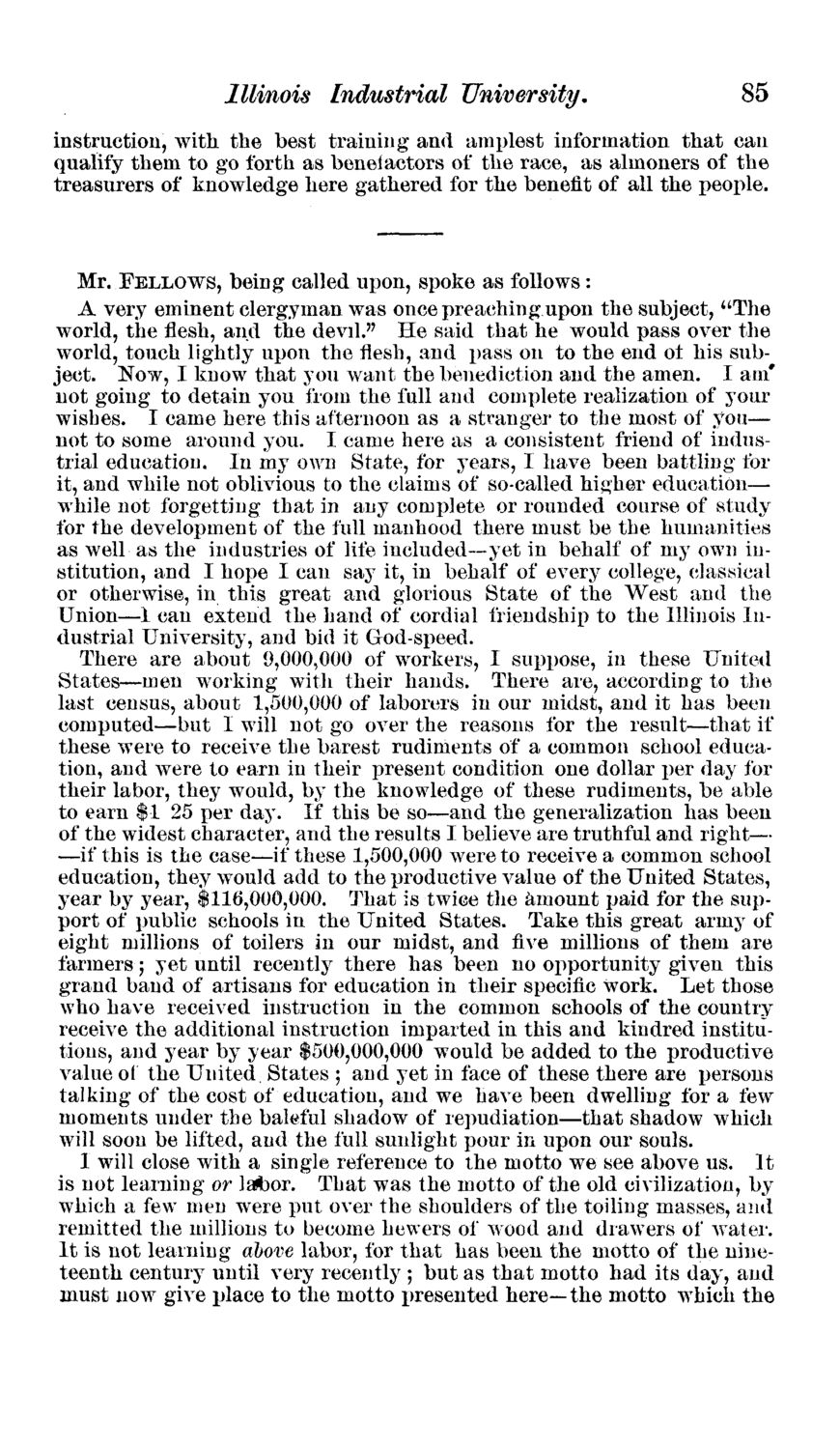| |
| |
Caption: Board of Trustees Minutes - 1874
This is a reduced-resolution page image for fast online browsing.

EXTRACTED TEXT FROM PAGE:
Illinois Industrial University. 85 instruction, with the best training and amplest information that can qualify them to go forth as bene!actors of the race, as almoners of the treasurers of knowledge here gathered for the benefit of all the people. Mr. F E L L O W S , being called upon, spoke as follows: A very eminent clergyman was once preaching upon the subject, "The world, the flesh, and the devil." He said that he would pass over the world, touch lightly upon the flesh, and pass on to the end ot his subject. Now, I know that you want the benediction and the amen. I am' not going to detain you from the full and complete realization of your wishes. I came here this afternoon as a stranger to the most of you— not to some around you. I came here as a consistent friend of industrial education. In my own State, for years, I have been battling for it, and while not oblivious to the claims of so-called higher education— while not forgetting that in any complete or rounded course of study for the development of the full manhood there must be the humanities as well as the industries of life included—yet in behalf of my own institution, and I hope I can say it, in behalf of every college, classical or otherwise, in this great and glorious State of the West and the Union—1 can extend the hand of cordial friendship to the Illinois Industrial University, and bid it God-speed. There are about 9,000,000 of workers, I suppose, in these United States—men working with their hands. There are, according to the last census, about 1,500,000 of laborers in our midst, and it has been computed—but I will not go over the reasons for the result—that if these were to receive the barest rudiments of a common school education, and were to earn in their present condition one dollar per day for their labor, they would, by the knowledge of these rudiments, be able to earn $1 25 per day. If this be so—and the generalization has been of the widest character, and the results I believe are truthful and right— —if this is the case—if these 1,500,000 wTere to receive a common school education, they would add to the productive value of the United States, year by year, $116,000,000. That is twice the amount paid for the support of public schools in the United States. Take this great army of eight millions of toilers in our midst, and five millions of them are farmers; yet until recently there has been no opportunity given this grand band of artisans for education in their specific work. Let those who have received instruction in the common schools of the country receive the additional instruction imparted in this and kindred institutions, and year by year $500,000,000 would be added to the productive value ot the United States ; and yet in face of these there are persons talking of the cost of education, and we have been dwelling for a few moments under the baleful shadow of repudiation—that shadow which will soon be lifted, and the full sunlight pour in upon our souls. I will close with a single reference to the motto we see above us. It is not learning or lartbor. That was the motto of the old civilization, by which a few men were put over the shoulders of the toiling masses, and remitted the millions to become hewers of wood and drawers of water. I t is not learning above labor, for that has been the motto of the nineteenth century until very recently ; but as that motto had its day, and must now give place to the motto presented here—the motto which the
| |